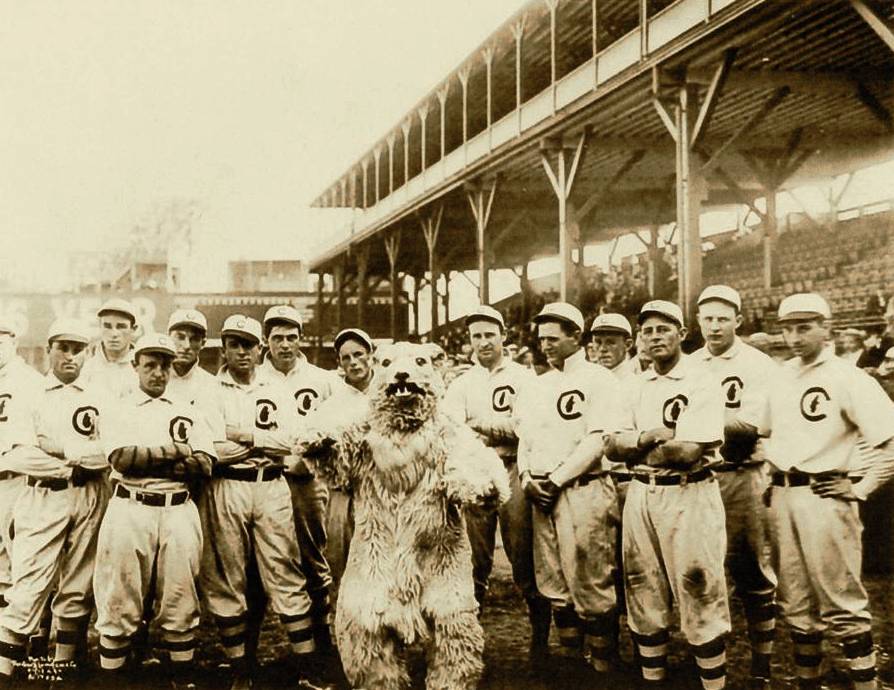The Cub’s victory teaches us that if people try hard enough and long enough, they can win.
Chicago’s iconic journalist, columnist, pundit, and Cubs fan, Mike Royko, once ruminated on what he learned from his years as a Chicago Cubs baseball fan: “It taught a person that if you try hard enough and long enough, you’ll still lose and that’s the story of life.”
He lived through a lot of history of Cubs defeat. Sometimes the Cubs got close to World Series play only to let errors or faulty complaints about how a fan interfering with an outfielder’s catch of a foul ball led to a playoff game loss. Or going back further to Royko’s youth, the Cubs acquired a colossally slow home run hitter to play one outfield position along with another great home run hitter who was even slower; or the trade of a future Hall of Fame outfielder/base stealer for a washed up pitcher.
While railing with vigor against the corruption, racism, and authoritarian rule of the first Daley machine in Chicago, Royko followed with sorrow and despair a baseball team that was in Steve Goodman’s words, “the doormat of the National League.” In fact, Goodman, the author of the powerful song about Middle America, “The City of New Orleans,” despite his disappointed love affair with the Chicago Cubs, sang about wanting to be buried in Wrigley Field.
Chicago’s love affair with its failed baseball teams prompted a disagreement between Royko and his friend and the other Chicago hero, Studs Terkel, on what the Cubs and the Chicago White Sox stood for. Studs correctly pointed out that the Southside White Sox were the working class team coming from a part of the city where there used to be “stockyards and steel mills.” And in contradistinction, Cubs fans “…are from the suburbs, brought in by big buses. It’s like going to an air show or ‘Cats’—something tourists do.”
Studs Terkel said, ‘it’s not about baseball. It’s about having been to a place to be.’
Terkel pointed out in his New York Times October 28, 2005 op-ed essay that for attendees at Cubs games “…it’s not about baseball. It’s about having been to a place to be.” He goes on to compare Wrigley Field, the “hallowed” ball park, with U.S. Cellular Field, “a dump.” The White Sox park only surpasses the Cubs venue in its toilets, “…the cleanest I’ve ever seen in a public place.”
Royko, Terkel (and Goodman) are Chicago heroes (in the same tradition as the Haymarket Martyrs and Lucy Parsons). But they are both wrong. The history of struggles, workers, women, African-Americans, gays, suggest just the opposite of Royko’s despondency. In fact, if groups of people try hard enough and long enough they can win. In Cubs history, great stars planted the seeds of victory — Ernie Banks, Billy Williams, Ferguson Jenkins, Ron Santo.
Can social change ever occur if Royko’s defeatist consciousness predominates?
They raised the possibility of victory that, while not experienced in the short term, has to be seen as part of a historic process that led to the 2016 season. This is even more clear as we look at the social movements of today. Where does the passionate rejection of the reactionary politics of the Trump campaign come from if not from past struggles? What about the Fight for 15, Black Lives Matter, and movements for climate change? Can social change ever occur if Royko’s defeatist consciousness predominates?
And although Terkel’s baseball “class analysis” of the Cubs and Sox is historically correct, baseball like life changes. Transformations can occur. The Chicago Cubs have become the City’s team: for workers, men and women, and more people of color than before. In fact, as a metaphor, the Cubs have transcended their upper class roots. In addition they have become a national phenomenon.
There is something about the inspiration that traditional “down and outers” in the sports world have for most of the citizenry. Perhaps sometime in the future, progressives will look back to 2016, and remember that an older, Democratic Socialist, Jewish politician inspired young people to think about building a better society. And they will remember also that the Chicago Cubs won the National League championship and won the World Series.
Read more articles by Harry Targ on The Rag Blog and listen to Thorne Dreyer’s August 2015 Rag Radio interview with Targ.
[Harry Targ is a professor of political science at Purdue University and is a member of the National Executive Committee of the Committees of Correspondence for Democracy and Socialism. He lives in West Lafayette, Indiana, and blogs at Diary of a Heartland Radical.]


















